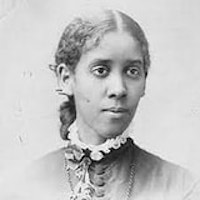John L. Steckley, who holds a Ph.D. in education from the University of Toronto and taught at Humber College in Toronto for more than 30 years, is currently writing a book on Sophia Bethena Jones.
 Sophia Bethena Jones was born on March 16, 1857 in Chatham, Ontario, a town that was a major northern terminus of the Underground Railroad, known in the 1850s as the ‘Black Mecca of Canada’. Consequently, the town had a relatively large Black population when Sophia was growing up, at least a third of the local population.
Sophia Bethena Jones was born on March 16, 1857 in Chatham, Ontario, a town that was a major northern terminus of the Underground Railroad, known in the 1850s as the ‘Black Mecca of Canada’. Consequently, the town had a relatively large Black population when Sophia was growing up, at least a third of the local population.
Her early education would have been in a segregated private school, financially supported by the local Black community, with Black teachers. Such schools were the only options available for Black students in Chatham until 1891. She went to Wilberforce Collegiate Institute, which prepared Black students for university.
She was accepted as an undergraduate at the University of Toronto in 1879. However, she was not admitted to the medical school, doubly damned by being both a woman and Black.
After teaching for a year, Sophia pursued her dream in the United States. She was accepted at the University of Michigan Medical School in 1880, and on May 16, 1885, at 28 years of age, she became the first Black woman to graduate from that program, as well as the first Black Canadian woman to receive a medical degree, something little recognized in Canada.
The University of Michigan Medical School has honored Dr. Jones in several ways. There is the Sophia Jones Lectureship on Infectious Diseases, and the Sophia B. Jones Room used for conferences. Then there is the Fitzbutler Jones Alumni Society, named after her and the first male Black male graduate of the medical school, William Henry Fitzbutler, who graduated in 1872. It was formed in 1997 to support Black students and alumni.
Dr. Sophia B. Jones went from the University of Michigan to teaching at what would become Spelman College, the oldest historically Black college for women, located in Atlanta. Dr. Jones joined the faculty in 1885 as the first Black female teacher, teaching there until 1888. In 1886, she was involved with the founding and operating of the nursing program. For a discussion of her influence there see “Sophia B. Jones Charts a Course of Success for African-American Doctors.”
Dr. Jones went on to teach at Wilberforce University in Ohio, a private institution dedicated to the education of Black students. She continued her career, first in St. Louis, then at the Frederick Douglass Hospital in Philadelphia, which provided the first training school for Black nurses in the city.
In September 1913, Dr. Jones published an article entitled “Fifty Years of Negro Public Health”, in The Annals of the American Academy of Political and Social Science, one of the first research publications written in the medical field by a Black woman. At the time she was the resident physician at the Agricultural and Mechanical College in Greensboro, North Carolina, later to become a branch of the University of North Carolina.
Dr. Jones died in 1932.

